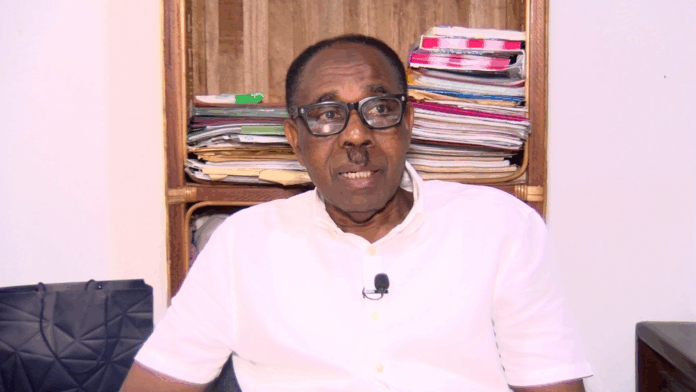The Ghana Timber Millers’ Organisation (GTMO) has expressed worry over the increasing demurrage at the ports due to prolonged documentation processes under the FLEGT license.
Ghana is the first African country to sign on the Forest Law Enforcement, Governance and Trade (FLEGT) License, introduced to address global concerns over illegal timber activities.
European countries, after realizing they were consuming large amounts of wood from tropical regions, obtained through unsustainable means, developed this policy to promote legal and responsible trade.
The FLEGT policy requires any country or company trading in Europe proves that their materials are legally sourced, well managed, and that their finances do not contribute to forest destruction.
Executive Secretary of GTMO, Dr. Kwame Asamoah Adam, noted that although members support the policy, they face major challenges.
The high cost of obtaining and maintaining the license systems, which require both government and company involvement, is a bane to the functionalities of the license.
Dr. Asamoah Adam explains that companies found to be non-compliant due to system errors are compelled to delay shipments and bear high cost of shipping.
“The way our shipping also is conducted is very expensive. You move goods to the port and plans that it will meet the incoming vessel and that your goods will not keep long at the port else you’re going to pay demurrage,” he said.
Dr. Asamoah explained that such delays can take weeks before another ship arrives, creating more cost and storage problems.
This, he says, is impacting on the business operations.
He said the organization must coordinate the process to ensure goods are cleared within 24 hours.
Ghana adopted the FLEGT strategy by signing the Voluntary Partnership Agreement (VPA) in 2009 and has since developed systems to protect the forest with full issuance of the license implemented in 2025.
Ghana has put in place mechanisms such as legality assurance and traceability systems to ensure forest laws are upheld and products exported to Europe can be traced to their origin.
“The Europeans realized that they’re consuming lot of wood from the tropics, either Africa, Asia or South America and for them to be able to contribute in solving that issue, they decided to come up with this policy where companies or countries who want to do business in Europe will prove that the materials they’re supplying to the Europeans have been legally sourced, it’s well managed and therefore their finances is not contributing to forestry distractions in the sourced country,” said Dr. Asamoah Adam.
He added that members have received training from the government on documentation and compliance, but they remain uncertain whether the heavy investments made will yield any premium returns from the European market.
Although the millers deem the FLEGT license as commendable, the high operational costs, shipping delays, and unclear market benefits remain the main challenges slowing its full implementation.
Source: Josephine Sagoe



